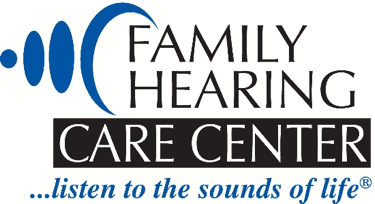
Safeguarding Against Emergencies: Preparing for the Unexpected with Hearing Loss
Emergencies can strike at any moment, and for individuals with hearing loss, they present unique challenges that require careful preparation. As a hearing professional, my aim is to shed light on the extra precautions that those with hearing loss should take to be ready for unexpected events. In this article, we will explore the latest advancements in hearing loss prevention, diagnosis, and management, discuss recent research findings, and glimpse into potential futuristic interventions. Above all, we will underscore the paramount importance of early detection for individuals with hearing loss.
The Importance of Early Detection
Early detection of hearing loss is the cornerstone of effective management and preparedness for emergencies. Unfortunately, many individuals delay seeking help for their hearing difficulties. The World Health Organization (WHO) reports that over 430 million people worldwide live with disabling hearing loss, and the average time it takes for someone to address their hearing loss is seven years. By the time many seek help, their hearing loss has often progressed significantly, making it more challenging to manage in emergency situations.
Recent research underscores the critical role of early detection in mitigating the impact of hearing loss during emergencies. A study published in the Journal of Emergency Medicine in 2020 revealed that individuals who identified their hearing loss early and engaged in rehabilitation reported better emergency preparedness, communication, and overall quality of life. This emphasizes the need for routine hearing screenings and timely intervention.
Advancements in Diagnosis
The field of audiology has witnessed remarkable advancements in the diagnosis of hearing loss. Audiologists now have access to sophisticated tools and technology that facilitate early detection and personalized treatment plans. One such development is the integration of teleaudiology services, which have become increasingly prevalent, especially in response to the COVID-19 pandemic.
Teleaudiology allows individuals to receive hearing evaluations and consultations remotely, ensuring they can still access necessary care while adhering to social distancing measures. This not only promotes early detection but also provides a convenient and safe avenue for individuals to address their hearing concerns.
Additionally, advances in diagnostic equipment, such as otoacoustic emissions (OAE) and auditory brainstem response (ABR) testing, enable audiologists to assess hearing function more comprehensively, leading to more accurate and customized treatment plans.
Management and Preparedness
Hearing aids have come a long way in terms of technological advancement. Today’s hearing aids are more discrete, durable, and efficient than ever before. Features like noise reduction, directional microphones, and Bluetooth connectivity allow individuals with hearing loss to better navigate emergency situations.
In the context of preparedness, hearing professionals play a crucial role in helping individuals with hearing loss select the right hearing aid and accessories. Hearing aids with telecoil technology can be invaluable during emergencies, as they allow users to connect to induction loop systems in public places, facilitating clear communication even in noisy environments.
Hearing professionals can also provide counseling and training to help patients adapt to their hearing aids and effectively use them during emergencies. Understanding how to adjust settings for various situations and troubleshooting common issues can be essential when quick responses are required.
Futuristic Interventions
As technology continues to advance, there is promising potential for futuristic interventions to further support individuals with hearing loss during emergencies. Researchers are exploring the integration of artificial intelligence (AI) and machine learning into hearing aids, which can enhance speech recognition in challenging acoustic environments. These AI-powered hearing aids can adapt to various situations in real-time, making communication more accessible during emergencies.
Furthermore, the development of implantable hearing devices is on the horizon. These devices, which may include cochlear implants and bone-anchored hearing systems, have the potential to provide more robust and reliable hearing solutions for individuals with severe hearing loss. They can be especially valuable during emergencies where external hearing aids might be less practical.
Compassion and Support
Throughout all of these advancements, the compassionate support of hearing professionals remains invaluable. It’s essential for individuals with hearing loss to have a trusted partner in their audiologist, someone who understands their unique needs and can guide them through the challenges of hearing loss during emergencies.
In addition to the technological aspects of hearing loss management, emotional support and counseling are equally important. The emotional toll of living with hearing loss can be significant, and during emergencies, stress and anxiety can exacerbate these feelings. Hearing professionals can provide resources and strategies for managing emotional well-being and ensuring mental resilience during challenging times.
In emergencies, hearing loss presents distinct challenges that require extra precautions and preparedness. Early detection is paramount, and recent research underscores its benefits in improving emergency preparedness and overall quality of life for individuals with hearing loss. Advancements in diagnosis and management, as well as the potential for futuristic interventions, offer a promising future for those living with hearing loss.
As hearing professionals, it is our duty to not only stay up-to-date with the latest developments but also to provide compassionate support and guidance to our patients. By combining early detection, the latest technology, and emotional support, we can empower individuals with hearing loss to confidently face emergencies and navigate the unexpected with resilience and determination.
